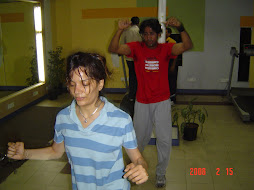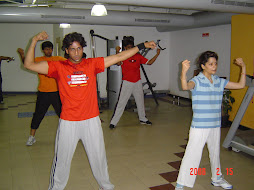Minerals, vitamins and healthy foods
are very essential for one’s body and to live a healthy happy life. We may be
getting some of these from our food intake, but we do tend to miss out on the
few essential nutrients if we do not make a conscious effort to eat healthy.
Here is a quick checklist of the essential vitamins, minerals and foods:
Vitamin A: Increase Your Beta-Carotene
There are two types of vitamin A: retinol and
carotenoids, like beta-carotene. Beta-carotene is a carotenoid found in many
orange and yellow foods like sweet potatoes, carrots, and winter squash, as
well as spinach and broccoli. Vitamin A is excellent in supporting good vision,
healthy immunity and tissue growth.
Vitamin D: Strong Heart and Mind
Vitamin D is important in the development of
healthy bones, muscles, and nerve fibers as well as a strong immune system.
Though our bodies can make it by exposure to sunlight, it is good to get
through our food groups as well. Foods that naturally contain Vitamin D, include
fatty fish such as salmon and mackerel, mushrooms, liver, cheese and egg yolk.
Milk, orange juice and many cereals are also fortified with vitamin D
Calcium: More Than Strong Bones
You probably know that calcium is good for
teeth and bones. But that's not all. Calcium helps maintain muscle function and
heart rhythm. It might even help prevent high blood pressure. Dairy is a good
source, but foods like salmon, kale, and broccoli have some calcium too. One
tip: Without enough vitamin D, your body can't absorb the calcium you take in.
Vitamin C: Good for Bones
Vitamin C, found in many fruits and
vegetables, boosts the growth of bone and tissue. As an antioxidant, it has
been found to help protect cells from damage. Vitamin C has also been found to
help in curing cold symptoms.
Potassium: Lower Blood Pressure
Magnesium: Prevent Disease
Main foods which are good sources of
magnesium are Spinach, beans, peas, whole grains, and nuts, especially almonds.
Low magnesium levels have been linked with health problems like osteoporosis,
high blood pressure, diabetes, muscle cramps, and heart disease.
Fiber: Bulk Up
Fiber from grains and beans has lots of
health benefits. It helps lower cholesterol, the risk of heart disease,
diabetes, and some cancers, as well as improve bowel regularity. High-fiber
foods are also filling and low in calories.
Healthy Foods to Eat!
Beans and Lentils
Beans and lentils are both extremely nutritious,
rich in protein, fiber, complex carbohydrates, iron, magnesium, potassium and
zinc. Eating a diet rich in legumes can help promote weight loss and has been
shown to lower LDL (low-density ‘bad’ cholesterol) and raise HDL (high-density
‘good’ cholesterol)
Watermelon
Watermelon is a sweet, juicy, low in calories
and full of vitamins C, A, potassium and lycopene. Because it is so high in water,
it helps to keep the body hydrated.
Sweet
Potatoes
Plain Nonfat Probiotic
Yogurt
Reema Sarin
FOUNDER
‘BOLLYFIT’
BOLLYWOOD DANCER,
ACTOR, MODEL, ANCHOR
& CHOREOGRAPHER

.jpg)






No comments:
Post a Comment